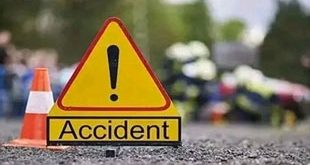
By Ronald Musoke
The National Curriculum Development Centre (NCDC) will, beginning this month (April), embark on the second phase of reforming Uganda’s lower-secondary school curriculum.
The project which has been running since Nov. 2011 will see S1-S4 students shift from the current system where a student learns over 14 subjects to a set of generic skills that are woven across and acquired through learning areas.
While addressing journalists at the NCDC offices on April 3, Mulumba Mutema, the coordinator of the programme said, with effect from 2017, students will be expected to take on eight learning areas [Creative Arts, Languages, Life Education, Mathematics, Religious Education, Science, Social Studies and Technology and Enterprise].
Mulumba said during the first phase, the curriculum writing panel teams which comprised teachers, teacher trainers, the Uganda National Examinations Board, the Directorate of Education Standards developed syllabuses for the eight learning areas, including new teaching and learning materials.
NCDC is now expected to liaise with Uganda’s key publishers on the way forward as far as the key support materials [learners’ text books and teachers’ guide manuals] are concerned. Mulumba said the guidelines to publishers are to ensure that the textbooks match the expected standards and meet the objectives of the reforms.
“Such exemplar textbook extracts will be part of the bidding documents for the publishers who will write textbooks for the lower secondary curriculum,” Mulumba said.
The exemplar text book extracts for all the eight learning areas have also been tested in the classrooms in different schools across the country with learners of different backgrounds and abilities.
“We were able to receive feedback on these materials which we used to refine them,” Mulumba said.
According to James Droti Asile, a curriculum specialist in charge of the Science learning area, the students liked the fact that they were involved in the learning process and the learning materials were more interactive and practical in nature.
On the other hand, although teachers took a little more time to prepare the teaching materials, they liked the fact that the new system made them more of facilitators of the learning process.
During the second phase, a detailed teacher retooling programme for all in-service teachers will be designed to prepare them to implement the reformed curriculum.
This programme will start in 2016.
“The need for re-tooling derives from the understanding that the new lower secondary curriculum is a radical change, where by a teacher will be required to teach a complete learning area,” Mulumba said.
“For instance, an existing teacher of chemistry will be expected to handle all the six carrier strands within the new science learning area,” he said.
The retooling programme will see teachers trained in appropriate pedagogy for skills and competence development.
According to NCDC, universities and other teacher training institutions is expected to change the teacher education curriculum for pre-service teachers to prepare them to handle the new curriculum.
The new curriculum is expected to be ‘criterion-referenced’ to ensure that standards can be maintained every year.
This new approach to assessment will support the changed emphasis in the nature of learning and teaching by assessing the learners’ understanding, not just their knowledge of key concepts in each learning area.
Focusing on the learners’ ability to apply their knowledge in a range of situations and enabling the learner to demonstrate a selection of relevant 21st century skills are the others.
Mulumba said the new curriculum is aimed at focusing the learner to acquire new and relevant skills to survive in the 21st century.
 The Independent Uganda: You get the Truth we Pay the Price
The Independent Uganda: You get the Truth we Pay the Price

